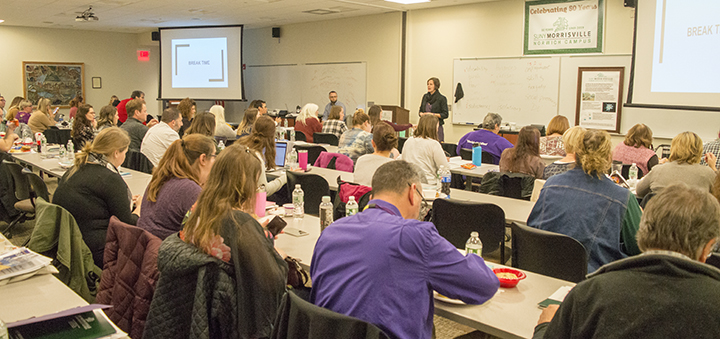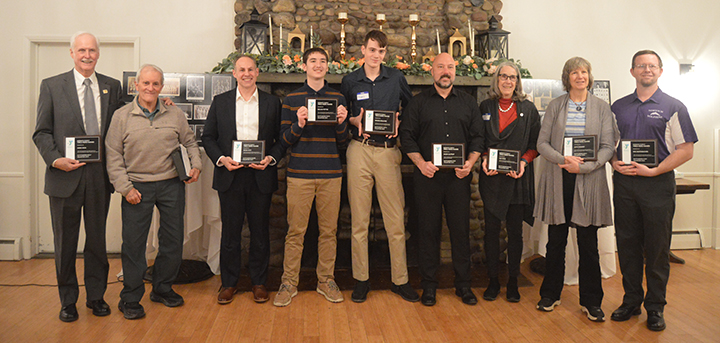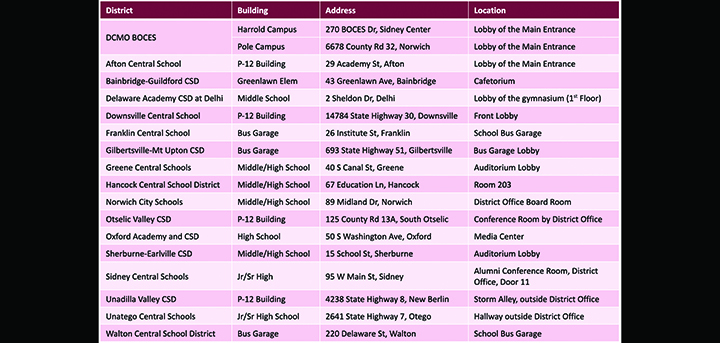What are society’s unspoken economic class rules?
(Photo by Zachary Meseck)
NORWICH – Nearly 100 people attended a free six-hour long educational seminar, “Bridges Out of Poverty,” on Wednesday. Presenters challenged attendees to consider what kinds of mindsets people in poverty, in the middle class, and in wealth have, along with what sorts of unspoken rules govern class-based thinking.
The course began at 8:30 a.m. on Wednesday, and was held in the SUNY Morrisville Norwich Campus Community Room. According to event representatives approximately 100 individuals attended the seminar, with representatives from a number of agencies including local school districts and government providers also in attendance.
Representatives said a goal of the seminar was to understand some of the causes of poverty and encourage positive change on an individual, community, and policy level. They added that organizations including Improve Norwich Now, SUNY Morrisville’s Norwich Campus, and Chenango Health Network sponsored the event. CareCompass Network and Health Connections also assisted with the program by providing materials at no cost to participants.
According to Bridges Out of Poverty presenter Nathan Mandsager, one of the keys to understanding economic class-based mindsets is to consider that the issues facing people in poverty aren’t simple.
“It’s not as simple as saying poverty is the result of individual behaviors,” said Mandsager. “We know that there are a lot of learned behaviors that lead to people suffering from financial strife, but often times we fail to consider the external poverty sources that could impact any of us.”







Comments